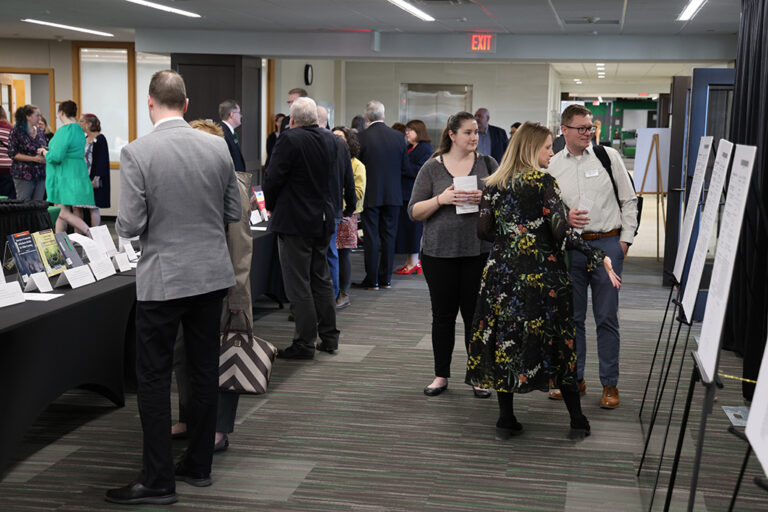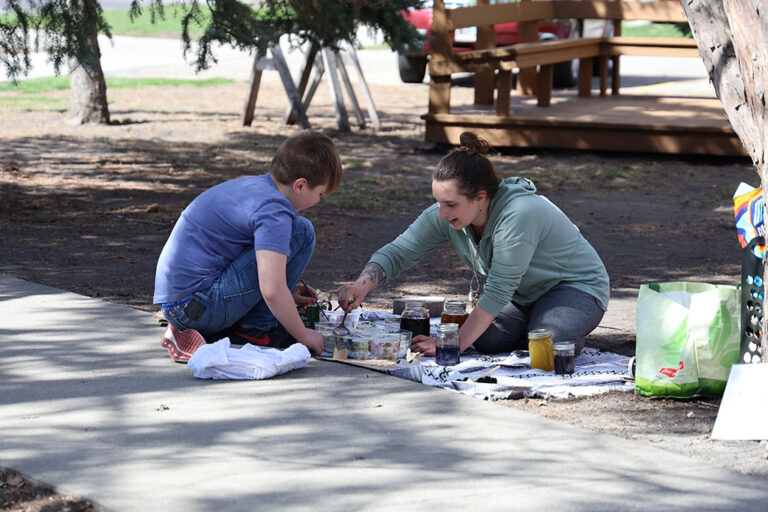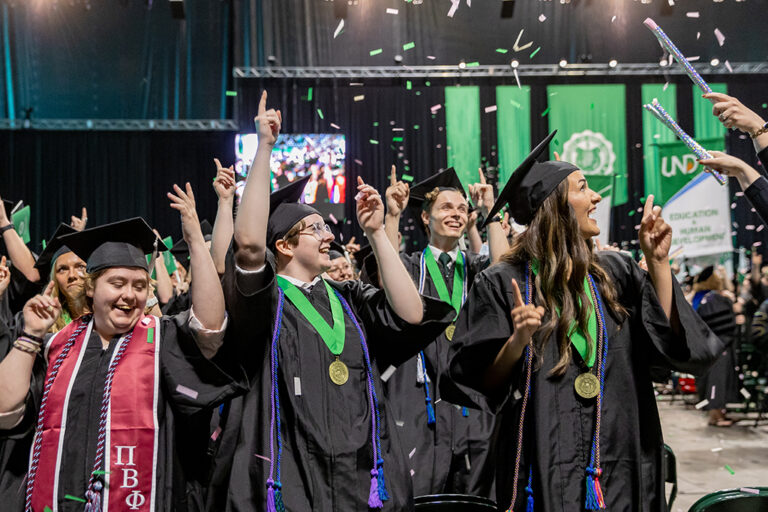How sharing can boost savings and well-being
Within close communities, sharing money is a powerful tool, UND’s Financial Interdependence Project Colloquium shows

By Jen Koller
You just had a fantastic job opportunity land in your lap. This new job would have better hours and a higher paycheck, which would help support your family. The only catch: The position requires a car. You found one that would work for $1,000, but don’t have that kind of money saved.
You’re unfamiliar and intimidated by the conventional loan process in America. And you do not want to be taken advantage of with loan terms you might not understand.
At dinner that night, you talk about the opportunity with your family. Your spouse mentions that an aunt might have a way to help: she’s the organizer of an informal savings club.
The group, called a tanda, has just 10 members, and each member contributes $100 monthly for 10 months. Your aunt collects, holds, and distributes the money for the group. Each month, one member receives $1,000. Her turn to receive the $1,000 payout is coming up, and she’s willing to lend it to you. (After all, you helped her by providing childcare several times in the last few months.)
A tanda is one of the many names given to savings clubs known as Rotating Savings and Credit Associations (ROSCAs). These informal organizations can be found worldwide and are often used by immigrants as a known and trusted cultural practice.
And ROSCAs, in turn, are examples of financial interdependence, the practice of sharing money as an expression of mutuality.
As a topic of academic study, financial interdependence is often ignored. And yet, for many societies, it is necessary as both a safety net and to gain prosperity. For example, ROSCAs are widely used in Muslim countries, where any interest paid or received on loans is considered impermissible based on Islamic finance rules. And in the United States, ROSCAs may appeal to immigrants who lack the Social Security number that banks require for traditional savings or checking accounts.
To learn more and spread the word about this topic, the UND-based Financial Interdependence Project (FIP) held a groundbreaking colloquium at the University of North Dakota in September. The FIP’s mission is to engage in research, training, and systems change, exploring and harnessing the dual financial and relational nature of financial interdependence to improve financial well-being.
And with that in mind, the three-day event brought together a range of interdisciplinary scholars, practitioners, and funders, including representatives from UND, Duke, South Dakota State, the University of Minnesota, and the National Endowment for Financial Education (NEFE).
For Miguel Quiñones, as with other scholars who presented research, the experience with financial interdependence was personal. “My family immigrated from Mexico,” he said. “They brought with them all these different types of strategies, like the tanda.”
Quiñones is a Ph.D. student in Family Social Science at the University of Minnesota-Twin Cities. His research shows how tandas are generally unrecognized in financial planning circles and often devalued by traditional banks and credit unions.
Yet tandas have worked for generations in Latin America and now in the United States, Quiñones noted. And today, “it’s interesting what happens when those practices and those informal institutions run up against the more formal licensed institutions that we have here in the U.S., like the banking institutions.”

Culture, Money, and Education
During the colloquium, participants explored cultural and financial models and saving practices that often fall outside the traditional Western worldview. They listened to research presentations as well as stories of firsthand experiences, exploring ROSCAs and similar arrangements as a part of normal life.
By the way, interdependence does not have to always involve cash or loans, conference attendees learned. “I remember when my grandmother’s roof went bad. The whole family chipped in,” said Jennifer Russell, a student in UND’s Master of Social Work program.
Russell, who shared a perspective on interdependence from a Native American lens, says that family contributed materials and did the labor for the project. “She had a new roof compliments of the family coming together and sharing in the responsibility.”
To anyone with a checking and savings account, relying heavily on family or using a ROSCA club for help with significant purchases could be perceived as risky. But while there are indeed risks, most participants view them as being outweighed by the accessibility, rewards, relationships, and success that these practices can offer.
Moreover, fraud is rare due to the social interconnections of the savings group, as trust is much harder to replace than a few thousand dollars.
And there are many reasons why, among low- and moderate-income individuals in the south Bronx (for example), payday lenders often are the preferred check-cashing institutions over banks, explained Toni Castro Cosío, a senior Behavioral Researcher at the Center for Advanced Hindsight’s Common Cents Lab at Duke University.
When asked why they didn’t use banks, community members said they didn’t have enough money to meet minimum bank balance requirements, the fees were too high, there were language barriers, and often, the hours of operation or physical location of a branch didn’t work for families.
“So, with the financial inclusion conversation, it is very important to note it’s not just moving users from outside the banking system to having a bank account,” said Castro Cosío. “There’s a lot going on outside of that landscape that is actually happening.”

Moving Forward
The colloquium was meant to call attention to the various aspects of financial interdependence. The idea was to establish a baseline understanding of the practice and how it operates, and to build partnerships to advance the field.
And it worked, said Jane Weiss, a clinical associate professor in Accountancy with UND’s Herr School of Accountancy, previously the Department of Accountancy & Information Systems. “I didn’t know about ROSCAs, and apparently they exist in every big city,” Weiss said in a post-presentation discussion.
Joshua Caraballo, managing director of Research with the National Endowment for Financial Education (NEFE), was open to the idea that the project can grow. “We are very interested in seeing how these sorts of ideas, theories, and frameworks can be incorporated,” he said. NEFE had two representatives at the colloquium.
Jeffrey Anvari-Clark, assistant professor of Social Work at the UND College of Nursing & Professional Disciplines, and coordinator of the University’s Financial Interdependence Project, noted that the project organizers hope to reshape financial education and empower with culturally informed knowledge that reflects an appreciation for financial interdependence dynamics.
“Clients may, in fact, be supporting both themselves and others outside the immediate household,” Anvari-Clark said. “At the Financial Interdependence Project, we’re aiming to reorient the perspective on money, showing that sharing is a norm being carried out all around us. And this has profound implications for how we design poverty and money-related behavioral health interventions.”
More information about the Financial Interdependence Project at UND can be found on the project’s webpage.

About the author:
Jen Koller is marketing & communications coordinator in the UND College of Nursing & Professional Disciplines.


